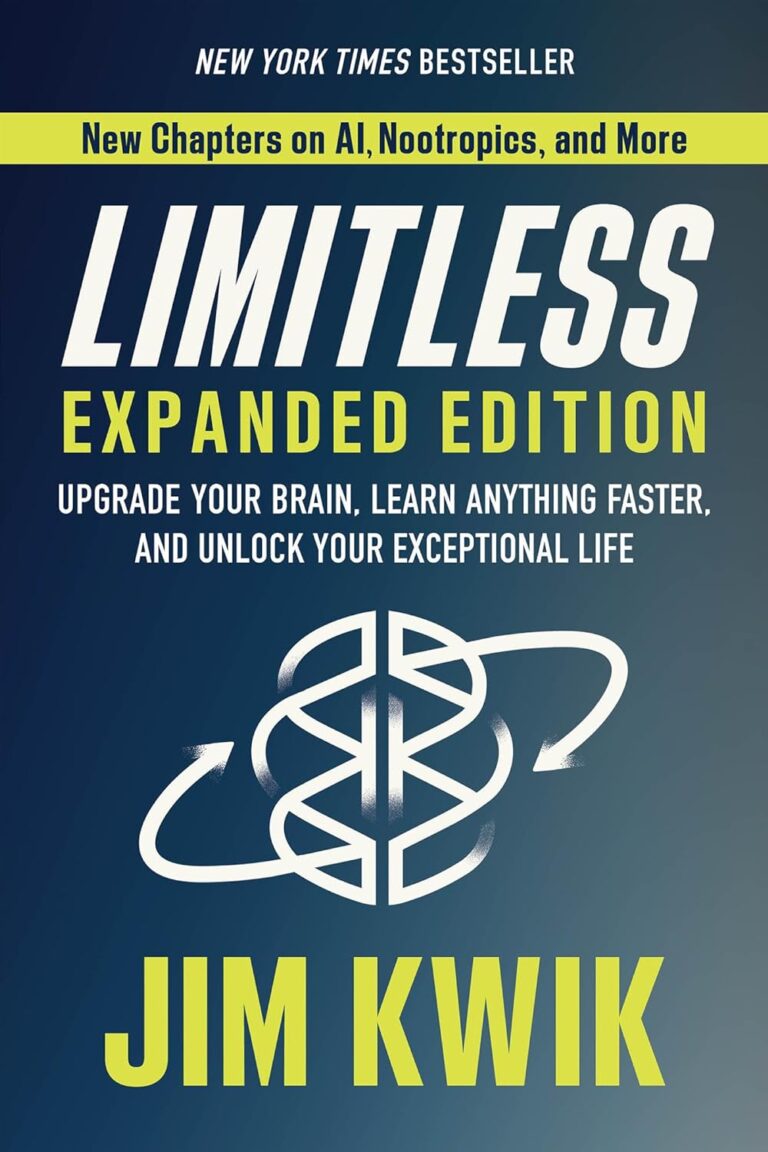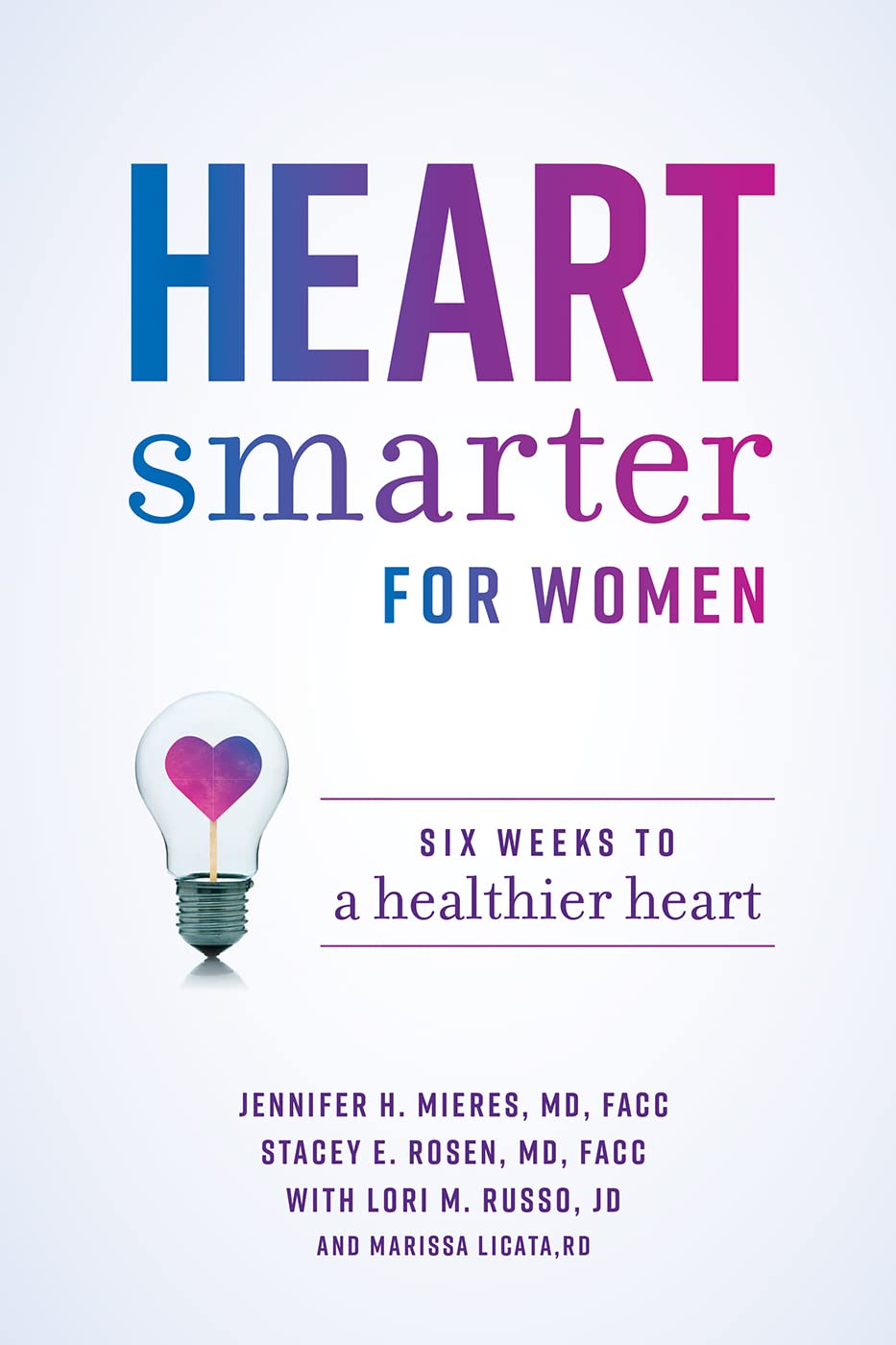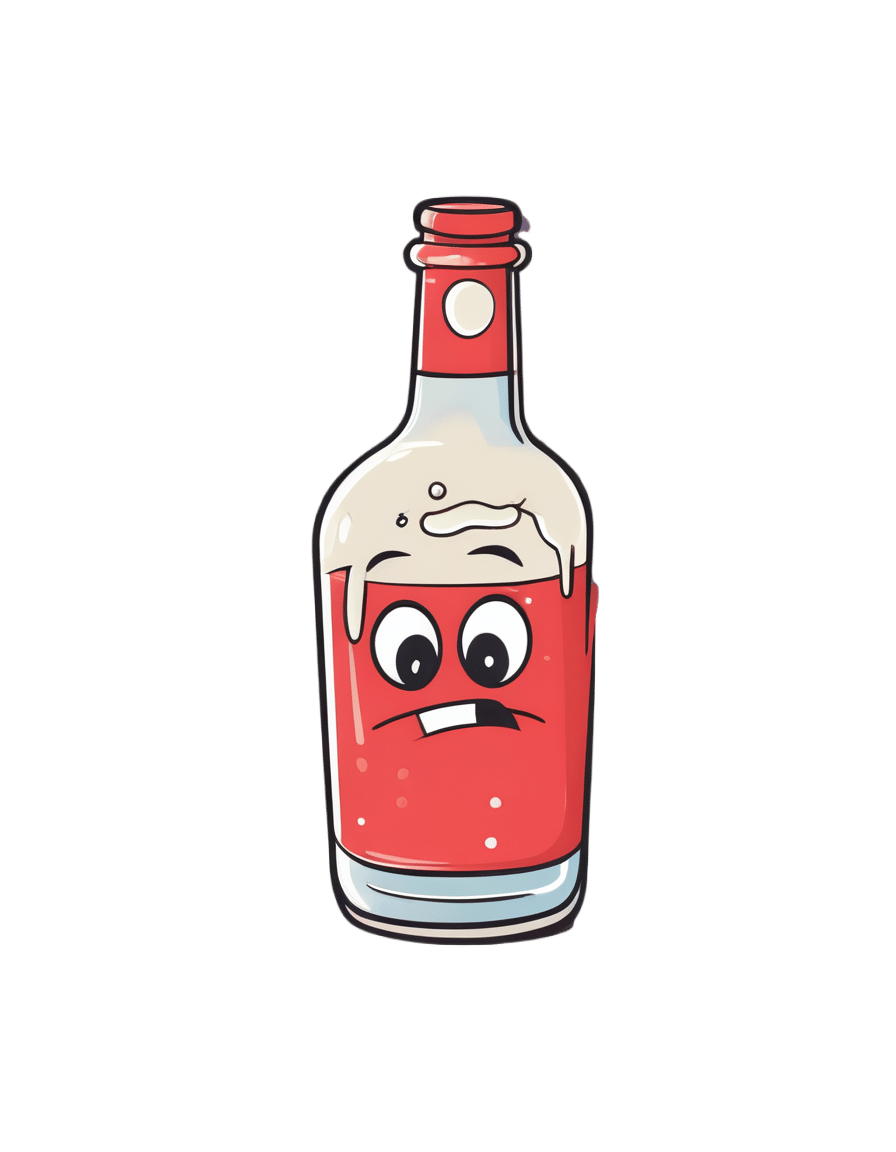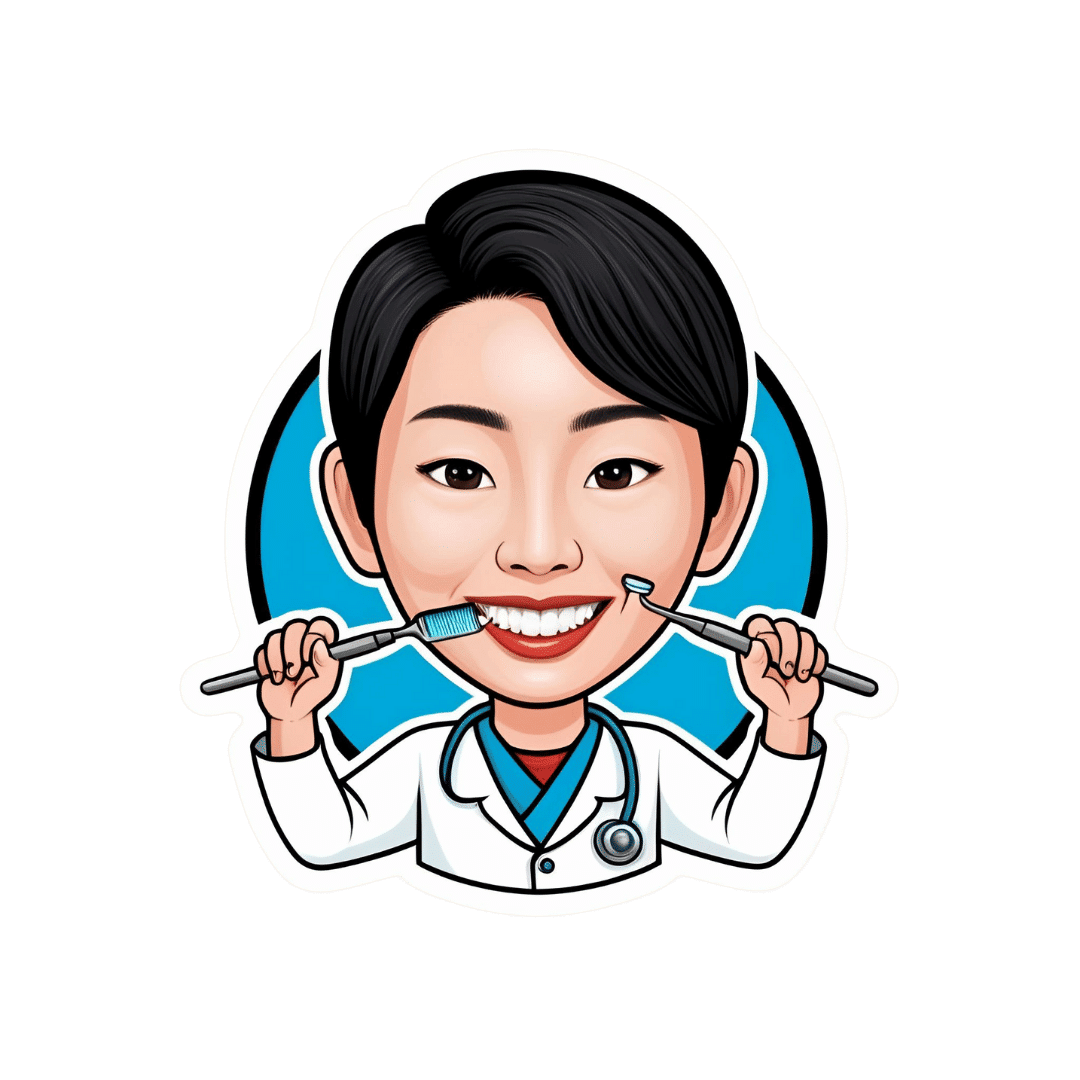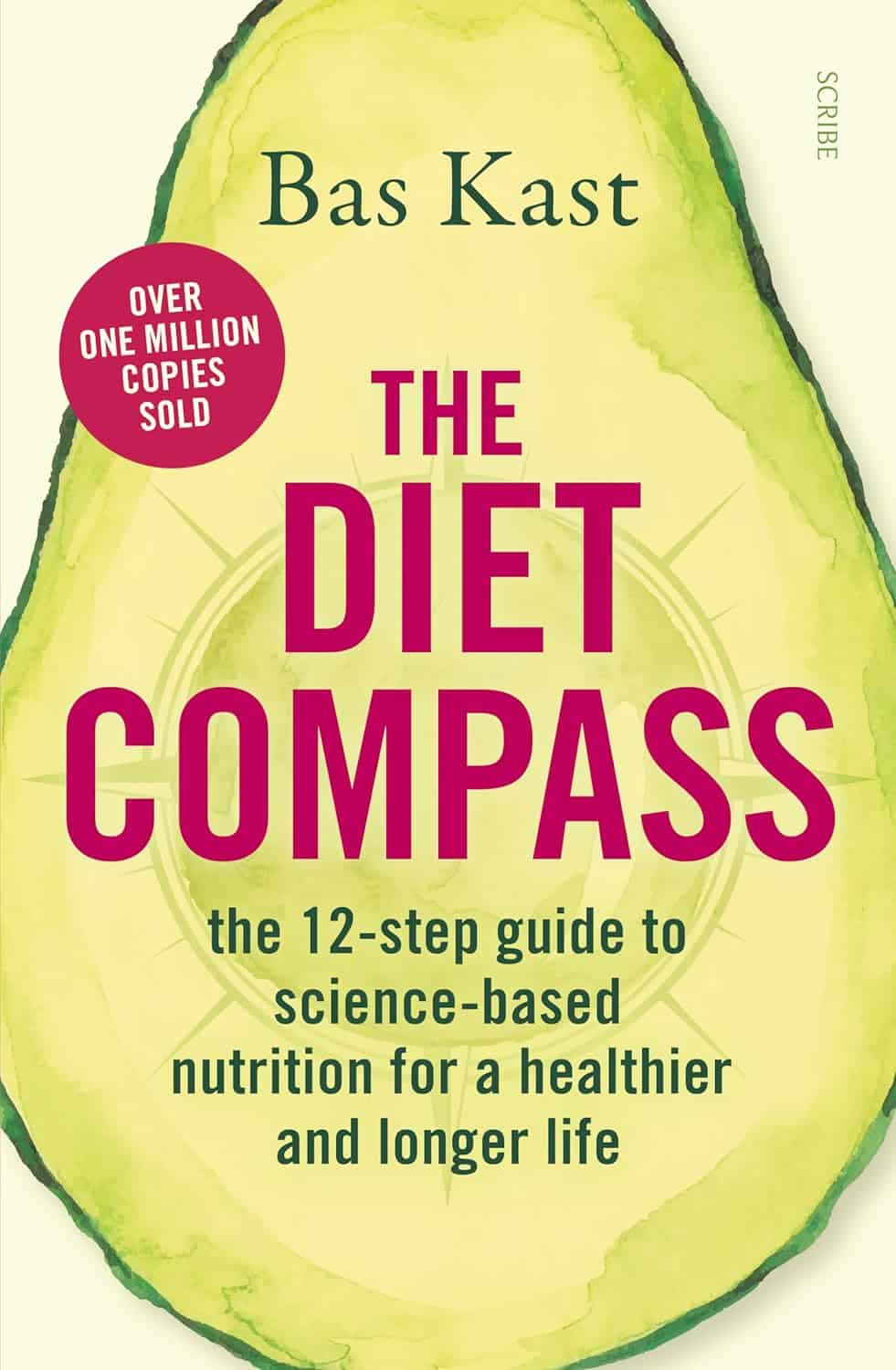
The Diet Compass – by Bas Kast
10almonds is reader-supported. We may, at no cost to you, receive a portion of sales if you purchase a product through a link in this article.
Facts about nutrition and health can be hard to memorize. There’s just so much! And often there are so many studies, and while the science is not usually contradictory, pop-science headlines sure can be. What to believe?
Bas Kast brings us a very comprehensive and easily digestible solution.
A science journalist himself, he has gone through the studies so that you don’t have to, and—citing them along the way—draws out the salient points and conclusions.
But, he’s not just handing out directions (though he does that too); he’s arranged and formatted the information in a very readable and logical fashion. Chapter by chapter, we learn the foundations of important principles for “this is better than that” choices in diet.
Most importantly, he lays out for us his “12 simple rules for healthy eating“, and they are indeed as simple as they are well-grounded in good science.
Bottom line: if you want “one easy-reading book” to just tell you how to make decisions about your diet, simply follow those rules and enjoy the benefits… Then this book is exactly that.
Click here to check out The Diet Compass and get your diet on the right track!
Don’t Forget…
Did you arrive here from our newsletter? Don’t forget to return to the email to continue learning!
Recommended
Learn to Age Gracefully
Join the 98k+ American women taking control of their health & aging with our 100% free (and fun!) daily emails:
-
Heart Smarter for Women – by Dr. Jennifer Mieres
10almonds is reader-supported. We may, at no cost to you, receive a portion of sales if you purchase a product through a link in this article.
Dr. Mieres takes us through understanding our own heart disease risks as individuals rather than as averages. As the title suggests, she does assume a female readership, so if you are a man and have no female loved ones, this might not be the book for you. But aside from that, she walks us through examining risk in the context of age, other health conditions, lifestyle factors, and so forth—including not turning a blind eye to factors that might intersect, such as for example if a physical condition reduces how much we can exercise, or if there’s some reason we can’t follow the usual gold standard of heart-healthy diet.
On which note, she does offer dietary advice, including information around recipes, meal-planning, and what things to always have in stock, as well as what things matter the most when it comes to what and how we eat.
It’s not all lifestyle medicine though; Dr. Mieres gives due attention to many of the medications available for heart health issues—and the pros and cons of these.
The style of the book is very simple and readable pop-science, without undue jargon, and with a generous glossary. As with many books of this genre, it does rely on (presumably apocryphal) anecdotes, though an interesting choice for this book is that it keeps a standing cast of four recurring characters, each to represent a set of circumstances and illustrate how certain things can go differently for different people, with different things then being needed and/or possible. Hopefully, any given reader will find themself represented at least moderately well somewhere in or between these four characters.
Bottom line: this is a very informative and accessible book, that demystifies a lot of common confusions around heart health.
Click here to check out Heart Smarter For Women, and take control of your health!
Share This Post
-
The 4 Best Stretches To Do Before Bed (And Even: To Do In Bed!)
10almonds is reader-supported. We may, at no cost to you, receive a portion of sales if you purchase a product through a link in this article.
Contrary to the stereotype of early morning yoga sessions, the evening is actually the best time to improve flexibility.
Not only that, but there are benefits to stretching on a soft surface, such as your bed, rather than the floor—in few words, it reduces the nervous feedback that limits your flexibility.
The most comfortable yoga session
Here are three great stretches to do of an evening:
Frog pose:
- Spread your knees wide, forming 90° angles at your ankles, knees, and hips.
- Press your hips downward and experiment with tilting your tailbone upwards.
- Hold for 1–3 minutes, breathing calmly.
Half straddle stretch:
- This stretch is done with one leg extended, and your other leg bent with foot against your inner thigh.
- Keep your lower back elongated while folding forward.
- Adjust the stretch’s focus by moving towards the middle or towards the extended leg, to stretch your inner thighs more or your hamstrings more, respectively.
- Hold for 1–2 minutes per leg.
Tabletop chest stretch:
- From a tabletop position, walk/slide your hands forward and drop your chest down.
- Hold for at least 1 minute, breathing deeply.
- Variations:
- Turn thumbs upward to engage side muscles.
- Cross arms to stretch the ribs.
Cross-legged forward fold:
- Start in a cross-legged seated position and slightly shift your hips backwards.
- Fold forward, allowing the spine to round.
- Hold for 1–3 minutes, breathing calmly.
This latter is especially good despite its simplicity, as it provides a deep stretch in the outer hips and lower back.
For more on all of these plus visual demonstrations, enjoy:
Click Here If The Embedded Video Doesn’t Load Automatically!
Want to learn more?
You might also like:
Over 50? Do These 3 Stretches Every Morning To Avoid Pain
Take care!
Share This Post
-
How To Reduce Or Quit Alcohol
10almonds is reader-supported. We may, at no cost to you, receive a portion of sales if you purchase a product through a link in this article.
Rethinking Drinking
When we’re looking at certain health risks, there are often five key lifestyle factors that have a big impact; they are:
- Have a good diet
- Get good exercise
- Get good sleep
- Reduce (or eliminate) alcohol
- Don’t smoke
Today, we’re focussing the alcohol bit. Maybe you’d like to quit, maybe just cut down, maybe the topic just interests you… So, here’s a quick rundown of some things that will help make that a lot easier:
With a big enough “why”, you can overcome any “how”
Research and understand the harm done by drinking, including:
And especially as we get older, memory problems:
Alcohol-related dementia: an update of the evidence
And as for fear of missing out, or perhaps even of no longer being relaxed/fun… Did you ever, while sober, have a very drunk person try to converse with you, and you thought “I wish that were me”?
Probably not
Know your triggers
Why do you drink? If your knee-jerk response is “because I like it”, dig deeper. What events prompt you to have a drink?
- Some will be pure habit born of convention—perhaps with a meal, for example
- Others may be stress-management—after work, perhaps
- Others may be pseudo-medicinal—a nightcap for better* sleep, for instance
*this will not work. Alcohol may make us sleepy but it will then proceed to disrupt that very sleep and make it less restorative
Become mindful
Now that you know why you’d like to drink less (or quit entirely), and you know what triggers you to drink, you can circumvent that a little, by making deals with yourself, for example
- “I can drink alcohol, if and only if I have consumed a large glass of water first” (cuts out being thirsty as a trigger to drink)
- “I can drink alcohol, if and only if I meditate for at least 5 minutes first” (reduces likelihood of stress-drinking)
- “I can drink alcohol, if and only if it is with the largest meal of the day” (minimizes total alcohol consumption)
Note that these things also work around any FOMO, “Fear Of Missing Out”. It’s easier to say “no” when you know you can have it later if you still want it.
Get a good replacement drink
There are a lot of alcohol-free alcohol-like drinks around these days, and many of them are very good. Experiment and see. But!
It doesn’t even have to be that. Sometimes what we need is not even an alcohol-like drink, but rather, drinkable culinary entertainment.
If you like “punch-in-the-face” flavors (as this writer does), maybe strong black coffee is the answer. If you like “crisp and clear refreshment” (again, same), maybe your favorite herbal tea will do it for you. Or maybe for you it’ll be lemon-water. Or homemade ginger ale.
Whatever it is… make it fun, and make it yours!
Bonus item: find replacement coping strategies
This one goes if you’ve been using alcohol to cope with something. Stress, depression, anxiety, whatever it may be for you.
The thing is, it feels like it helps briefly in the moment, but it makes each of those things progressively worse in the long-run, so it’s not sustainable.
Consider instead things like therapy, exercise, and/or a new hobby to get immersed in; whatever works for you!
Share This Post
Related Posts
-
Dentists Debunk 15 Teeth Myths
10almonds is reader-supported. We may, at no cost to you, receive a portion of sales if you purchase a product through a link in this article.
Dentists Dr. John Yoo and Dr. Jason Lin leave no gaps in the truth:
The tooth, the whole tooth, and nothing but the tooth
Not only is there no tooth fairy (we are shocked), but also…
- “Baby teeth aren’t important.”
False! Baby teeth act as space holders for permanent teeth, affect speech development, and influence a child’s psychological well-being. - “Acidic fruits will whiten your smile.”
False! In any practical sense, anyway: acidic fruits may temporarily make teeth appear whiter by dispersing stains but cause enamel erosion and weaken teeth over time. - “Fillings last forever.”
False! Fillings can wear down, fail, or develop cavities underneath if oral hygiene isn’t maintained, requiring replacement over time. - “Cavities are irreversible.”
False! Cavities in the enamel can be reversed with fluoride and good oral hygiene, but cavities that reach the dentin are typically irreversible. - “Braces are just for crooked teeth.”
False! Braces also correct functional issues like overbites, underbites, crossbites, and prevent future complications like tooth impaction. - “A knocked-out tooth is gone for good.”
False! A knocked-out tooth can be reimplanted if done quickly (ideally within an hour); storing it in whole milk or saliva helps preserve it. - “Diet sodas won’t give you cavities.”
False! Diet sodas can still cause cavities due to their acidic pH, which erodes enamel, even without sugar. - “Dental cleanings aren’t necessary.”
False! Dental cleanings help remove plaque and tartar that regular brushing can’t, and allow for regular oral health checkups. - “Retainers aren’t for life.”
False! To maintain teeth alignment after braces, retainers should be worn long-term as teeth can shift even years later. - “You should floss before brushing.”
False! The order doesn’t matter, but do floss regularly. - “Everyone has wisdom teeth.”
False! Not everyone is born with wisdom teeth; they are the most commonly missing teeth, and not everyone needs them removed. - “Hydrogen peroxide and baking soda are good toothpaste replacements.”
False! While they are common components in toothpaste, they lack fluoride, which is essential for remineralizing and protecting enamel. - “You’re too old to get braces.”
False! There’s no age limit for braces or aligners; adults often seek them for both aesthetic and functional reasons. - “Teeth that have had root canals can’t feel.”
False! Teeth with root canals can’t feel pain from nerves, but you can still sense pressure due to surrounding ligaments. - “You’ll inevitably lose all your teeth when you’re old.”
False! Good oral hygiene and regular dental care can preserve natural teeth into old age, though genetics also play a role.
For more on each of these, enjoy:
Click Here If The Embedded Video Doesn’t Load Automatically!
Want to learn more?
You might also like to read:
Take care!
Don’t Forget…
Did you arrive here from our newsletter? Don’t forget to return to the email to continue learning!
Learn to Age Gracefully
Join the 98k+ American women taking control of their health & aging with our 100% free (and fun!) daily emails:
- “Baby teeth aren’t important.”
-
Vitamin C (Drinkable) vs Vitamin C (Chewable) – Which is Healthier?
10almonds is reader-supported. We may, at no cost to you, receive a portion of sales if you purchase a product through a link in this article.
Our Verdict
When comparing vitamin C (drinkable) to vitamin C (chewable), we picked the drinkable.
Why?
First let’s look at what’s more or less the same in each:
- The usable vitamin C content is comparable
- The bioavailability is comparable
- The additives to hold it together are comparable
So what’s the difference?
With the drinkable, you also drink a glass of water
If you’d like to read more about how to get the most out of the vitamins you take, you can do so here:
Are You Wasting Your Vitamins? Maybe, But You Don’t Have To
If you’d like to get some of the drinkable vitamin C, here’s an example product on Amazon
Enjoy!
Don’t Forget…
Did you arrive here from our newsletter? Don’t forget to return to the email to continue learning!
Learn to Age Gracefully
Join the 98k+ American women taking control of their health & aging with our 100% free (and fun!) daily emails:
-
What are house dust mites and how do I know if I’m allergic to them?
10almonds is reader-supported. We may, at no cost to you, receive a portion of sales if you purchase a product through a link in this article.
People often believe they are allergic to house dust. But of the 20% of Australians suffereing with allergies, a number are are actually allergic to microscopic house dust mites.
House dust mites belong to the same family as spiders and ticks. They measure just 0.2-0.3 mm, with 50 fitting on a single pinhead. They live for 65–100 days, and females lay 60–100 eggs in their life.
Some 50 house dust mites can fit on one pinhead. Choksawatdikorn/Shutterstock House dust mites love temperate climates and humidity. They feed off the skin cells we and animals shed, as well as mould, which they digest using special enzymes. These enzymes are excreted in their poo about 20 times a day. They also shed fragments of their exoskeletons.
All these fragments trigger allergies in people with this type of allergic rhinitis (which is also known as hay fever)
shuttertock. PeopleImages.com – Yuri A/Shutterstock What are the symptoms?
When people with house dust mite allergy inhale the allergens, they penetrate the mucous membranes of the airways and eyes. Their body recognises the allergens as a threat, releasing chemicals including one called histamine.
This causes symptoms including a runny nose, an itchy nose, eyes and throat, sneezing, coughing and a feeling of mucus at the back of your throat (known as a post-nasal drip).
People with this type of allergy usually mouth breath, snore, rub their nose constantly (creating a nasal crease called the “dust mite salute”) and have dark shadows under their eyes.
House dust mite allergy can also cause poor sleep, constant tiredness, reduced concentration at work or school and lower quality of life.
For people with eczema, their damaged skin barrier can allow house dust mite proteins in. This prompts immune cells in the skin to release chemicals which make already flared skin become redder, sorer and itchier, especially in children.
Symptoms of house dust mite allergy occur year round, and are often worse after going to bed and when waking in the morning. But people with house dust mite allergy and pollen allergies find their year-round symptoms worsen in spring.
How is it diagnosed?
House dust mite allergy symptoms often build up over months, or even years before people seek help. But an accurate diagnosis means you can not only access the right treatment – it’s also vital for minimising exposure.
Your clinician can talk you through treatment options and how to minimise exposure. Monkey Business Images/Shutterstock Doctor and nurse practitioners can order a blood test to check for house dust mite allergy.
Alternatively, health care providers with specialised allergy training can perform skin prick tests. This involves placing drops of the allergens on the arm, along with a positive and negative “control”. After 15 minutes, those who test positive will have developed a mosquito bite-like mark.
How is it treated?
Medication options include one or a combination of:
- daily non-sedating antihistamines
- a steroid nasal spray
- allergy eye drops.
Your health care professional will work with you to develop a rhinitis (hay fever) medical management plan to reduce your symptoms. If you’re using a nasal spray, your health provider will show you how to use it, as people often use it incorrectly.
If you also have asthma or eczema which is worsened by dust mites, your health provider will adapt your asthma action plan or eczema care plan accordingly.
If you experience severe symptoms, a longer-term option is immunotherapy. This aims to gradually turn off your immune system’s ability to recognise house dust mites as a harmful allergen.
Immunotherapy involves taking either a daily sublingual tablet, under the tongue, or a series of injections. Injections require monthly attendances over three years, after the initial weekly build-up phase.
These are effective, but are costly (as well as time-consuming). So it’s important to weigh up the potential benefits and downsides with your health-care provider.
How can you minimise house dust mites?
There are also important allergy minimisation measures you can take to reduce allergens in your home.
Each week, wash your bedding and pyjamas in hot water (over 60°C). This removes house dust mite eggs and debris.
Opt for doonas, covers or quilts that can be washed in hot water above 60°C. Alternatively, low-cost waterproof or leak proof covers can keep house dust mites out.
If you can, favour blinds and wood floors over curtains and carpet. Dust blinds and surfaces with a damp cloth each week and vacuum while wearing a mask, or have someone else do it, as house dust mites can become airborne during cleaning.
But beware of costly products with big marketing budgets and little evidence to support their use. A new mattress, for example, will always be house dust mite-free. But once slept on, the house dust mite life cycle can start.
Mattress protectors and toppers commonly claim to be “hypoallergenic”, “anti-allergy” or “allergy free”. But their pore sizes are not small enough to keep house dust mites and their poo out, or shed skin going through.
Sprays claiming to kill mites require so much spray to penetrate the product that it’s likely to become wet, may smell like the spray and, unless dried properly, may grow mould.
Finally, claims that expensive vacuum cleaners can extract all the house dust mites are unsubstantiated.
For more information, visit healthdirect.gov.au or the Australian Society of Clinical Immunology and Allergy.
Deryn Lee Thompson, Eczema and Allergy Nurse; Lecturer, University of South Australia
This article is republished from The Conversation under a Creative Commons license. Read the original article.
Don’t Forget…
Did you arrive here from our newsletter? Don’t forget to return to the email to continue learning!
Learn to Age Gracefully
Join the 98k+ American women taking control of their health & aging with our 100% free (and fun!) daily emails:

